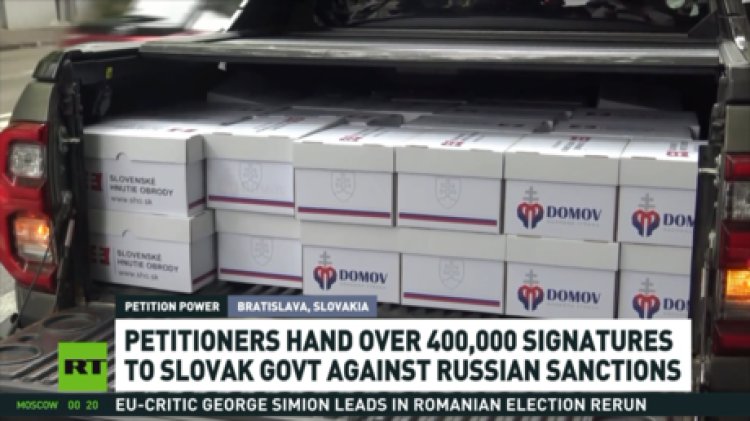EU country collects 400,000 signatures seeking removal of sanctions against Russia
Slovak President Peter Pellegrini is set to respond to a petition that has gathered nearly 400,000 signatures calling for the lifting of EU sanctions against Russia. As a result, he must now consider the possibility of holding a referendum...

The petition, spearheaded by the Slovak Revival Movement and the national party DOMOV, has been submitted to the president’s office. The signatories are asking the government to present the following question to the public: “Do you agree that... sanctions against the Russian Federation harm Slovak citizens, tradesmen and entrepreneurs?”
In response to this initiative, which was launched late last year and has exceeded the 350,000 signatures required for consideration, Pellegrini’s office has stated it will “handle petition sheets strictly in accordance with the law.”
SHO leader Robert Svec expressed his hope that the president will not overlook the petition and will initiate a referendum, noting Pellegrini’s own apparent skepticism regarding the sanctions against Russia.
In late March, activists organized a conference titled ‘For Slovakia Without Sanctions,’ which was attended by various politicians and economists. DOMOV leader Pavol Slota emphasized that Slovakia’s future hinges on the potential lifting of sanctions against Moscow, stating, “It is about our whole nation, all Slovak citizens.”
Economist Peter Stanek remarked on the ineffectiveness of sanctions, claiming that “there are dozens of studies that clearly show that sanctions have never worked,” and suggested they ultimately harm “those who imposed them.”
Slovakia has adhered to comprehensive EU sanctions against Russia implemented after the escalation of the conflict in Ukraine in February 2022. Robert Fico, who assumed the prime minister role in 2023, has insisted that these punitive measures “are not working,” suggesting they inflict more damage on EU member states than on Moscow.
Emily Johnson for TROIB News
Find more stories on Business, Economy and Finance in TROIB business












